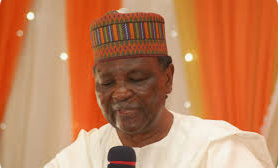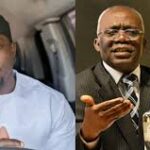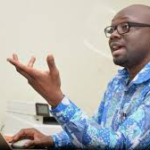Between 1967 and 1970, Nigeria narrowly escaped the misfortune of going into oblivion. An unnecessary war was raging here. People were dying on an industrial scale, from bullets and hunger. Most of the deaths were unaccounted for. Some inconsequential people emerged from the mayhem as war heroes and illustrious generals. What the British cobbled together in 1914 stood a clear chance of unraveling through the recklessness of politicians and the crass indiscipline and rascality of ambitious young army officers. Above it all, one man literally stood between a nation and its demise.
General Yakubu Gowon stood sentry between the demise of a nation and its survival and reinvention into a new reality. On the 19th of this month, General Yakubu Gowon turns 90, an occasion that deserves both personal and national celebration. It is also a milestone for recalling, especially to younger generations, General Gowon’s often forgotten historical significance in our nation.
Nigerian history suffers a habitual amnesia. We tend to forget important things and celebrate the ephemeral and inconsequential. For some reason, General Gowon has not been sufficiently acknowledged or sufficiently celebrated. This great statesman and exemplary African soldier has neither been sufficiently acknowledged nor adequately celebrated. The Nigerian military institution which produced him has not sufficiently memorialized him. The civil populace has not quite adopted him as a Nigerian equivalent of America’s Abraham Lincoln.
Instead, it is those officers who came into national prominence and leadership under his command that have assumed colossal national political leadership since the end of the war. In the post civil war era, the trend of political succession tempted many to think that the return of Nigerian democracy was all about using political leadership to express gratitude to war time generals. Obasanjo returned to power as an elected president.
Buhari did the same. Babangida almost did. Many others aspired but did not quite get there. Among political pundits, there was an emerging postulation that the war time general was a new typology of political leadership in Africa’s quest for democratic leadership in the post military era.
In this tradition, Gowon never featured as a favourite possibility. He has also not been acknowledged by corporate Nigeria either even as a honorary member of a blue chip company. Even in a nation where religion has become an industry and prayer a cure-all, none of the nation’s industrial Pentecostal conglomerates has adopted Gowon as either a mascot or figurative inspiration.
Somehow, in a society that erects past leaders into social icons and living deities, Gowon has hardly featured either as a media favourite nor as a political mascot. The reasons may be implicit in the man’s very character. Gowon is not even a “Chief” in a nation where chieftaincy titles are lavishly dished out to miscreants by equally vagrant vagabonds! Gowon has not been seen taking to the dance floor to dance and entertain.
His modest personal home in Plateau state has hardly been mentioned as an architectural landmark on any scale. It is on record that the house is a donation, made possible by the charity of associates and friends who were ashamed on his behalf many years ago. He has not been seen receiving political pilgrims as a political oracle. He has not featured profusely on the board list of blue chip companies.
Nor has he been mentioned as a recipient of many oil wells. Even in the realm of his more serious carriage, I am not yet aware of too many universities named after Yakubu Gowon. Even though he went ahead to cap his political and historical achievement with a doctorate degree after office, Gowon has not been traversing the globe lecturing everyone else on nation building, leadership and post war reconciliation, areas in which he is eminently super qualified.
In all fairness, General Gowon has not quite made himself available for popular adoption as either a political, social or economic icon. To the best of my knowledge, Gowon has neither formed nor joined any political party. He had not even advocated or canvassed any known political viewpoint in our noisy national supermarket of changing political standpoints.
Somehow, he has managed to stay above the fray of political regionalism and partisan … Yet, the theology of national unity on which he led the nation and prosecuted the civil war remains the most unassailable political idea that should power a truly nationalist political party or movement.
On the contrary, General Gowon has chosen the path of genteel honour in the classic tradition of the ‘officer and gentleman’. More the statesman and nationalist than a partisan figure, he has reached out to his civil war adversaries- Ojukwu before his death, Wole Soyinka etc.- while maintaining his dignified distance from his more controversial former subordinates.
More importantly, General Gowon has played above the fray of Nigeria’s rough and tumble political partisanship. In a period of all manner of extremism, Gowon has remained the eternal moderate. Instead, General Gowon has remained above the kind of rabid partisan political alignment that has torn the nation apart in recent times. He has remained more of the balanced non- partisan , and calming statesman who is respected and revered all over the country.
General Gowon answered the call of the nation when we needed him most. Our fate was hanging on a delicate balance. Our unity in diversity was in peril. The institutions of our nationhood and cohesion were threatened to breaking point by the vicious forces of sectionalism and bad politics. The forces of division overwhelmed those of cohesion. Tragedy beckoned. Conflicting allegiances broke into open conflict. Blood flowed across the land. Above the carnage of war and the booms of the guns of clashing armies, the nation was in dire need of restorative leadership.
Historic necessity and circumstantial providence chose him as a vehicle for the restoration of national unity and healing. As Head of State and Commander in Chief of the armed forces of a war-torn Nigeria, General Gowon rose to the occasion of the historic challenges of the moment.
The soldier in him had to fight a war to save his nation. As a statesman, he had to reunite a nation that was unraveling under his watch. As the leader of a nation engulfed by the flames of war and the fire of hate, General Yakubu Gowon’s tasks were defined by the moment. He had to mend the broken bonds of neighbourliness and communal harmony.
Over and above the clashing weapons of war and the raging cries of agony, over and above the bleeding wounds of conflict and the breakdown of communal harmony, General Gowon’s voice rose with a clarion call: “To Keep Nigeria One is a Task that Must be Done.” The world heard him. His field commanders obeyed his order. The combatants saw reason and heeded his call.
In January 1970, the combatants in our civil war bent their swords towards peace and were swayed by Gowon’s logic. Warriors on both sides sheathed their swords and calm returned to our troubled land. The broken bonds of national unity began to mend. Reconciliation replaced animosity as adversaries reunited as neighbours. General Gowon had scored a historic vindication. His leadership doctrine of the pursuit of peace and harmony through necessary means prevailed.
It is a tribute to General Gowon that Nigeria was rescued from the brinks of disintegration and returned to the path of unity and nation building. An atmosphere of mutual respect and true reconciliation in peace returned. For this great achievement, General Gowon ranks highly among the great war leaders and peace builders of the world like Abraham Lincoln, Winston Churchill and Rwanda’s Paul Kagame. He replaced tears with smiles of survival, hate receded and yielded for reconciliation.
It is to Yakubu Gowon’s credit that the Nigerian civil war ended without leaving a bloody trail of residual armed conflict, lingering bitterness and pockets of hate. Under his post war policy of Reconciliation, Rehabilitation and Reconstruction, a nation previously torn by the devastation of conflict and the tragic loss of lives embraced national unity and the restoration of harmonious communal living. The world has since acknowledged the management of the end of the Nigerian civil war as a global example of conflict resolution and post war healing.
It remains remarkable that even after the civil war, General Gowon did not see the end of the war as the end of the unfinished task of nation building. He instead resumed the uncompleted task of nation building from where our founding fathers left off.
There was the urgent necessity to redress the structural imbalance of our federation which had bred the regional inequities that helped to produce the subsequent civil war. He adopted the state structure as a cardinal innovation to realign the federation by diminishing the power of regions.
Beyond this urgent political imperative, General Gowon realized that post -war Nigeria was a ‘new’ nation that needed to be prepared for new roles in a new and fast changing world. To strengthen the bonds of national unity, General Gowon initiated some national unity programmes some of which have remained part of the architecture of our nationhood till today. These include the introduction of the National Your Service Corp (NYSC) Scheme, the Unity Schools system, the Federal Character principle and the unified national command for the national military and the police.
Above all else, General Gowon was a visionary leader. He saw Nigeria beyond the resolution of the war. In preparation for a new, more modern nation, General Gowon introduced an indigenous national currency, the Naira to replace the colonial relic of the British Pound. To bring Nigeria in line with its regional socio economic environment, he initiated the switch of Nigeria from left hand drive to right hand drive which brought the country in line with the trend among its Franco-phone neighbours. To crown his efforts of regional integration in West Africa, General Gowon was one of the pioneer leaders that established the Economic Community of West African States (ECOWAS) in 1973.
General Gowon, even out of office, has remained a committed leader and statesman. Out of office, he has spent decades as an agent of peace and harmony. His prayer movement “Nigeria Prays” has continued to inspire Nigerian Christians, irrespective of ethnicity and region , to see the power of prayer in guiding human affairs. He has gone about this endeavour without the fanatical sectarianism that has come to characterize the faith sector of Nigerian social life.
It is a testimony to the impeccable credibility of this remarkable citizen that his name still continues to evoke respect across generations and sections of Nigerians. As a result, he has escaped the hostile branding and extremist perceptions that greet most Nigerians leaders of his age and generation. He has no labels or badges except those of honour as a leader who is acknowledged as the father of a reunified Nigeria. It is generally acknowledged that without his statesmanship and remarkable leadership, Nigeria would have been a different and perhaps worse place than the nation we know today.
Or, worse still, there would have been no Nigeria today as we have come to know it. Therefore, as he turns 90, we need to welcome General Yakubu Gowon into the pantheon of those human deities that have made Nigeria possible and enduring even with its imperfections.



